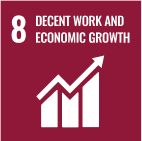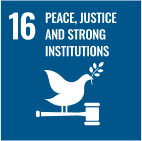sdg:
sdg:
-
3
-
8
-
12
-
13
-
16
Vision of the future
Industry scenario
GRI 2-6
In January 2023, Brazil had 4,529 private hospitals and 264,253 beds available, mostly concentrated in the states of São Paulo and Minas Gerais, according to the survey Brazilian Hospital Scenario — 2023, prepared by the National Health Confederation (CNSaúde, in Portuguese) and the Brazilian Federation of Hospitals (FBH, in Portuguese), available for consultation here. Although these figures seem significant, they present a scenario of concern for a country of continental dimensions.
Today, we have a ratio of 1.9 bed per one thousand inhabitants, below the average ratio for Latin America, which is 2 beds per one thousand inhabitants, and well below the World Health Organization’s (WHO) global estimate of 3.2 hospital beds per one thousand inhabitants.
Furthermore, in some regions, such as the Southeast, which concentrates 42% of Brazil’s private hospitals, the concentration of units is much lower than that of beneficiaries, as 61% of the population with health insurance is concentrated in this region.

Data shows an imbalance in the Brazilian hospital operation, with successive losses of private hospital units and beds in recent years. In 2022, 202 private hospitals were opened, while 139 closed down given the challenges and difficulties of keeping a hospital running.
Added to this, healthcare insurance carriers continued to record negative results, totaling BRL 4.5 million, according to a report by the Brazilian Association of Healthcare Plans — Abramge, in Portuguese (Cenário da Saúde publication, volume 8 no. 4). The data, however, already shows a recovery over the previous year, driven by an increase in the number of beneficiaries (expected to grow by 1.6% in 2023, to 51.2 million people) and improved management models (reducing expenses, reviewing processes), as well as the growing use of analytics, artificial intelligence, among other tools.
From a macroeconomic stance, the Brazilian scenario remained challenging in 2023 but saw the start of an upturn in the level of economic activity. Greater acquisition of services has led to an expansion in this segment’s activities. Traditionally a high employer, the sector boosted the labor market, which contributed to GDP closing the year up by 2.9%, slightly above the forecast. As a result, Brazil was ranked among the Top 20 largest economies in the world in 2023, according to the International Monetary Fund (IMF).
Inflation, as measured by the Extended National Consumer Price Index (IPCA, in Portuguese) — the government’s official rate —, closed 2023 with an accumulated increase of 4.62%, within the inflation target range determined by the National Monetary Council (CMN, in Portuguese), which was 3.25% (inflation was 5.6% in 2022). The unemployment rate ended the year at an average of 8%, showing that most of the population is employed, which contributes positively to the recovery of the economy and, consequently, to spending with healthcare.
+ 60
PROJECTS
in the Organic Expansion Program
6,634
NEW BEDS
planned with the Organic Expansion Program
11,737
TOTAL BEDS
at the end of 2023
Rede D’Or’s operation
GRI 3-3
We continue to strengthen the private hospital network to ensure hospital care for the Brazilian population. In 2023, we increased the number of beds to 11,737 (2.2% more than in 2022). Our organic expansion program includes more than 60 projects distributed in new units (greenfield) and existing units (brownfield), totaling 6,634 beds, 1,221 of which have already been delivered between 2021 and 2023.
The program is part of the strategy grounded on three pillars that guide our business model and permeate all our activities: financial sustainability; perceived quality; and technical quality. Thus, we are able to offer humanized, high-quality care, which is safer and incorporates the most modern technologies, in accordance with the most up-to-date medical evidence.
Accordingly, we maintain our commitment to keeping the highest ethical and integrity standards in our care practices, in the relationship with all stakeholders and in our commercial transactions.





